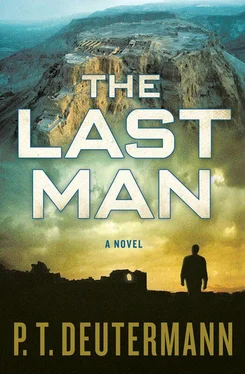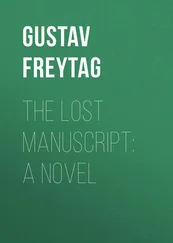They went down a tastefully decorated hall, past offices where middle-aged men in short-sleeved shirts were talking softly on their phones. At last they came to another, even fancier reception area, where Ellerstein saw armed guards. Gulder was waiting and took him into the prime minister’s office.
Once Ellerstein got over his surprise at being invited into the PM’s office, he took a look around. The PM sat behind his desk, looking tired. He got up to shake hands with him and then indicated that he and Gulder should sit down. The beautiful young lady closed the double doors and left them in privacy.
“So, Professor Ellerstein,” the PM said. “You have been a consultant to Shabak for how long now?”
“Too many years, Prime Minister,” Ellerstein replied, thinking back to his days as an undercover agent at Dimona.
“Israel Gulder here tells me that you are one of the best we have. That you are the soul of discretion, unencumbered by a wife or children, and therefore in a unique position to help us with a truly serious problem.”
“I am ready to try, Prime Minister,” Ellerstein said, somewhat apprehensively. Shabak was Israel’s loose counterpart to the American FBI, an internal security investigative service that was aimed more at protecting the state from criminal operations than at gaining foreign intelligence, which was the role of Mossad. Shabak had regular, full-time agents and also a corps of so-called consultants, professional men and women, lawyers, doctors, professors, scientists, financiers, in strategic niches of Israeli society whose attachment to Shabak was a secret, and who could be called upon from time to time to help out with narrowly focused inquiries. Many of the consultants were foreigners who had made aliyah, or immigrated to Israel. The organization liked to recruit these people early on, when their patriotic fervor was at its height, and also because native-born Israelis tended to have a healthy disrespect for the numerous Israeli security organs. Ellerstein had been recruited while still a mathematician at Dimona, to penetrate the anti-nuclear-weapons faction calling itself LaBaG, where, in fact, he had first encountered the Ressners.
The PM sighed. “Good,” he said. “We are grateful. Our little country is beset these days, by both friends and enemies, it seems. The Americans pressure us to make peace with people who really want war. The Iranians are centrifuging uranium hexafluoride twenty-four hours a day. Hezbollah stockpiles rockets, while helping Syria destabilize the Lebanon, again. Hamas is dabbling in nerve gas, with the help of those same European nations demanding we make peace. And I, of course, have one or two political problems of my own in the Knesset, yes?”
Ellerstein matched the PM’s tired smile with one of his own. He did not know how or why these politicians did it. They were just driven, he supposed.
“However, those are not the problems we want your help on, Professor Ellerstein, and what I’m about to tell you is most secret. It is doubly most secret if it’s true, but still most secret even if it’s false, because the idea itself is a very dangerous idea. Am I making sense here?”
“No, sir,” Ellerstein said.
The PM barked a laugh. Not too many people would say that to his face, apparently, Ellerstein thought. Gulder was looking hard at his shoes.
“Just so. Of course I’m not. Well: Here goes, then. Israel, you tell him.”
Gulder cleared his throat. “You will recall my telling you that our interest in Judith Ressner was related to a serious problem, yes?”
Ellerstein nodded, remembering. In the restaurant.
“Well, here it is: There are rumors, the barest straws in the wind, mind you, that there is a small group of people who are calling themselves the Kanna’im, the Zealots.”
“The Zealots? As in Metsadá?”
“Yes, just like that. They apparently believe that the government is getting close to giving away the store, as the Americans put it. That we are making too many concessions to the Arab side. That we, the government, are selling out our nation’s security to the Americans, in return for their aid money, with which we buy votes. That the very existence of Israel has been called into question by the attitude of this new American president, who favors the Muslim side and who may even be a Muslim himself. That we, the government, have become far too accommodating.”
“There are many people in Israel today who think those things,” Ellerstein said. “Perhaps not in such strong terms, but—” He shrugged.
Gulder’s face went red. Ellerstein looked back at the PM, who was giving him an exasperated look. He realized he might have overstepped the bounds of propriety, but it was true. People did think that. Hell, he thought that. He sidestepped. “These latter-day Kanna’im — they are military?” he asked. “They plan what, a coup?”
He saw the PM shake his head. Gulder said no, then looked over at the PM as if to ask how far he should go with this. The PM nodded.
“The group is inside Dimona. We think they may have engaged in the diversion of nuclear materials. What material, and to whom, we do not know.”
“My God.”
“Exactly,” the PM said, “and to answer your question, we do think there are military people involved, and perhaps even scientists.”
Ellerstein started to say something, but then the enormity of it sank in: Dimona. He took a deep breath and let it out slowly. There would have to be scientists involved. He could fully understand military types embracing the Zealot myth, but for a scientist to do it was something very new. “For how long?” he asked.
“Good question,” Gulder said, “and the answer is: We don’t know. This is supposedly a very small group, which makes things really tough. We do have one name. Unfortunately it is some kind of a code name. It is Lazarus.”
They both looked at him to see if he would recognize who they were talking about. He did not. Then he remembered: Skuratov, the skull-faced Russian. Colonel Lazarus. Head of security at Dimona, who had paid a call on Judith Ressner.
“Colonel Skuratov,” Ellerstein said quietly. “Head of security—”
“At Dimona,” Gulder finished for him.
“Yes,” Ellerstein said. “At Dimona.”
Gulder nodded at him and fished a folder out of his briefcase. “I have a snapshot biography right here. Let me read you some excerpts.” He pushed his glasses back up on his nose and read out loud. “Malyuta Lukyanovitch Skuratov. Probably an assumed name. Born in the former Soviet Union, trained as a physicist, and worked in the Russian atomic energy program until his aberrant political views attracted the attention of the KGB. Defiance at an interrogation and the fact that his mother was a suspected Jew brought him banishment to the Gulag. Served sixteen years at hard labor in a coal mine before making an incredible dead-of-winter escape out of Russia through the Caucasus Mountains. He survived this ordeal, but at the cost of having his face, feet, and hands badly frostbitten. Picked up by the Turkish Army border patrol. They promptly threw him in jail as a Russian spy, and it was not for another year that he was able to win his freedom and emigrate to Israel as part of a spy-swap exchange between our government and Turkey. After nearly a year in physical rehabilitation, Skuratov was invited into our weapons program at Dimona.”
Ellerstein remembered something. He had actually met the Russian by chance, at one of the small outdoor Sunday chess clubs in Beersheba, where some of the scientists working at Dimona lived. Like many of them he often frequented such informal clubs for intellectual companionship that was untainted by laboratory politics. The older Russian with the hideous face and black-gloved hands had established a fearsome reputation for something approaching grand-master-level play, and Ellerstein, much younger then, had tried him on. The Russian swiftly defeated him in four straight games, but then Ellerstein managed to check the fifth game into a draw. The Russian had given him a wintry smile and made some comment about persistence being worth ten times its weight in intelligence.
Читать дальше












